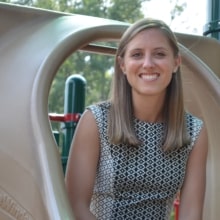
Do North Carolinians believe it’s beneficial to pursue higher education? What do they think about our state’s community colleges, public universities, and K-12 system?
These questions and more are answered in a new survey published this week by the myFutureNC Commission. The survey, conducted by Gallup, polled 3,456 adults in North Carolina from July 31 through Sept. 6, 2018 and sheds light on North Carolinians’ perceptions of educational attainment, access, and opportunities. Overall, the poll demonstrates that North Carolinians see the value in higher education but believe our K-12 schools are not adequately preparing students for success.
North Carolinians see value in higher education but are concerned about access
Americans’ declining perceptions of higher education in recent years have made headlines. Both Gallup and Pew Research found an increasingly negative view of higher education among Republicans in the last two years. While the Gallup report does not break out answers by political affiliation, it is clear that a large majority of North Carolinians support higher education and see it as necessary for a good job.
More than nine in 10 people surveyed, 94 percent to be exact, said it is very important or important to have an education beyond high school, which includes getting a professional certificate. Additionally, 65 percent agreed with the statement, “People like me can get ahead by getting more education.” This percentage was higher for Hispanics at 71 percent than for whites (66 percent) or African-Americans (61 percent).
While those surveyed believe higher education is important, more stated that high school graduates should get four-year degrees (46 percent) than two-year degrees (24 percent) or a professional certificate (23 percent). Just seven percent said high school graduates should go straight to work.
These results demonstrate North Carolinians believe in the value of education beyond high school, but they also have concerns about barriers to access, including affordability. Almost half of those surveyed (46 percent) do not think education is available to anyone who wants it in the state. Both men and those over the age of 45 were more likely to say education is available to anyone who wants it than women and respondents ages 18 to 44. Additionally, only 43 percent of those surveyed agreed there are affordable higher education options for working adults.
North Carolinians are concerned about quality and funding of K-12 schools
Only two in 10 people surveyed believe that the quality of education in North Carolina is better than other states and 35 percent think it is worse. The other half believe the quality is about the same as other states. When you break that down by educational attainment, those who think the quality is worse are more likely to have a college degree or higher.
In addition to overall quality, just over half of respondents (53 percent) do not believe that all students in North Carolina are receiving the same quality of education regardless of background. Respondents in Tier 3 counties (the least economically distressed counties), African-Americans, and those with a college degree were more likely to think all students do not receive the same quality of education than residents of Tier 1 and 2 counties, whites, and those with a high school degree or less.
Looking at quality concerns by education sector, North Carolinians seem most happy with the state’s higher education options, including community colleges, and least happy with the K-12 system. To gage North Carolinians’ satisfaction with the quality of education, the survey asked respondents to grade the different sectors on a scale of A through F.
Starting with pre-school, a majority of those surveyed (63 percent) gave pre-schools in their area a grade of an A or B. By comparison, 48 percent of respondents gave the K-12 schools in their area an A or B, and only 36 percent gave the K-12 schools in the state an A or B.
For higher education, North Carolinians are just as satisfied with the quality of their local community colleges as with the quality of four-year public and private institutions. Seventy-three percent of respondents gave the community colleges in their area an A or B. That is just above the percentage of people who gave four-year public institutions an A or B (70 percent) and just below the percentage for four-year private institutions (75 percent).
When asked about the biggest challenges for the K-12 schools in their community, 74 percent of those surveyed said lack of funding, 56 percent said quality of teachers, 41 percent said teacher turnover, 40 percent said poor communication with parents/families, and 32 percent said not enough guidance counselors.
To read more about the survey and see a full breakdown of these results by demographic, age, and educational attainment, read the full report here.
Weekly Insight Education

